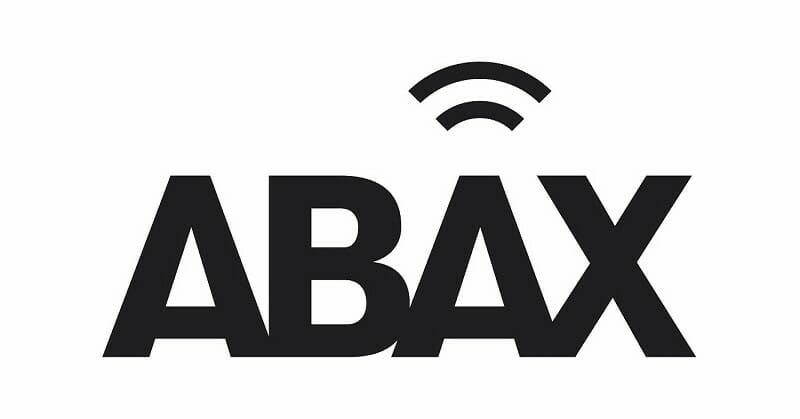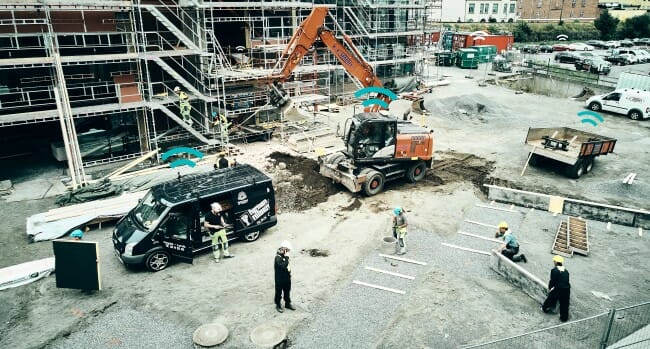
The tight margins the UK construction industry has been trying to navigate its way through with rising labour and material costs are set to tighten once again. Now braced for the change in red diesel legislation, we look at the financial impact businesses are facing due to higher costs and higher theft, and how the adoption of telematics technology can offer a solution.
With the change in red diesel legislation last month, we look at the financial impact businesses are facing due to higher costs and higher theft, and how the adoption of telematics technology can offer a solution.
April 1st – this date had been looming over the UK construction sector like a dark cloud. It’s the day it becomes illegal to fill vehicle and machinery tanks in the UK with red diesel, leaving businesses faced with a fuel duty bill five times higher overnight.
This change in law follows the Finance Bill 2021, introduced to help meet the objectives surrounding climate change and quality of air. Low-tax red diesel makes up more than 15% of all diesel used in the UK, contributing to more than 13 million tonnes of CO2 each year. In 2018, construction in London alone was responsible for 7% of nitrogen oxide emissions.
In short, the government hopes by restricting the use of red diesel, the construction sector will be pressured to source and invest in cleaner alternatives. Some firms have already announced they will be switching to alternatives such as hydrotreated vegetable oil (HVO) and Shell GTL – there are also talks of widespread introduction of Biomethane HGV refuelling stations.
However, trade bodies are arguing that the removal of red diesel is going to have the opposite effect. A survey by the Civil Engineering Contractors Association in September 2021 warned of the colossal negative impact. Data showed that tax changes would cost SMEs in the sector between £250,000 and £600,000 each year – with 50% of businesses voicing real concerns about their ability to continue trading while shouldering this new financial burden.
Another consequence of increased volumes of white diesel on construction sites is fuel theft.


So, what can businesses do to get control over tightening margins? Ultimately, it comes down to visibility and changes in behaviour – you need one to encourage the other.
More than ever, construction businesses should be exploring the world of technology on offer. The right telematics system is going to give you increased visibility over fuel costs, operational processes and criminal activity.
Optimised logistics
The ability to plan routes more strategically improves fuel management. Greater visibility results in increased efficiency and less fuel being used unnecessarily on trips. It also has a positive impact on customer service, with the ability to provide accurate details on arrival and collection times through live map data. Our case study with a plant and machinery hire business is a real world example of this.
Driver behaviour
Bad driving burns fuel. Fact. In the new era of fuel costs, and Co2 reporting, businesses can’t afford to waste money or expose themselves to potential brand damage. By monitoring driver behaviour, you’re able to clearly identify training needs and manage those that are presenting a risk to your business.
And if you’re also exposed to out of hours use, telematics provides the ability to monitor usage and prevent unauthorised use that sees businesses footing the bill.
Reduced insurance costs
While fuel costs are rising, it’s possible to reduce insurance costs by using a telematics system. Our partnership with Zego means that businesses can benefit from data-led, mileage-based pricing – never paying more than the minimum base rate when vehicles are off the road. One customer saved £30,000 by making use of this – you can learn more about this partnership here.
Idling
The financial impact of idling should not be overlooked – in a vehicle with a 5-litre engine, every 10 minutes of idling burns 500ml of fuel. Data from CAT shows that, construction equipment idle time can be as much as 40-50% of total operation time – it’s unavoidable but it can be reduced, and with rising fuel costs a reduction can equate to significant savings. Telematics technology will highlight idling time per vehicle, allowing site managers to identify areas where improvements could be made.
Theft
In 2020 the cost of theft and vandalism in construction sat at £800 million. Rising prices in the industry have led to predictions that crime rates – and the knock-on financial impact – will increase further in 2022.
Geofencing and live positional data on vehicle, plant and tools offer accurate and real-time data – helping theft prevention and vastly improving rates of recovery. This customer story explains how their business recovered equipment worth £25,000 using the ABAX system, read in full here.
When it comes to fuel theft – mileage count functionality allows businesses to compare miles covered vs fuel spent – an opportunity to identify a shortfall.
Machine usage
With plant and equipment hire, it’s crucial to accurately bill for the correct usage. ABAX reporting provides this functionality – also allowing for better servicing and maintenance planning, and so reducing unexpected downtime.
In summary
Unfortunately, there is no hiding from the cost implications that come with paying higher duty on red diesel. However, as demonstrated above – there are a number of areas where telematics delivers a ROI across the business, improving operational efficiency and resulting in some real short and long term savings for a business.
ABAX telematics units are self-installable, provide HMRC compliant data and offer live-tracking solutions, all allowing you to access actionable location and usage data on all your assets – and via one easy-to-use interface. Grey, mixed, large and small fleets can all be tracked in an efficient and cost-effective manner, whilst also provide vital reporting data on demand.
If you’re looking for your fleet to make environmental, financial and productivity savings, then ABAX could be the solution for you. Go to ABAX.com/uk or call 01733 698888.
